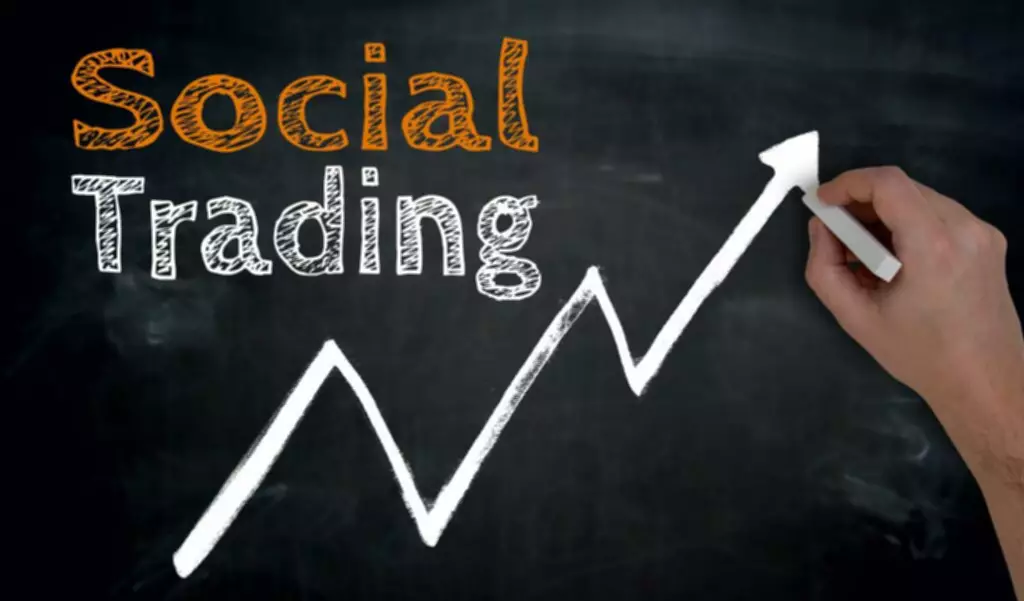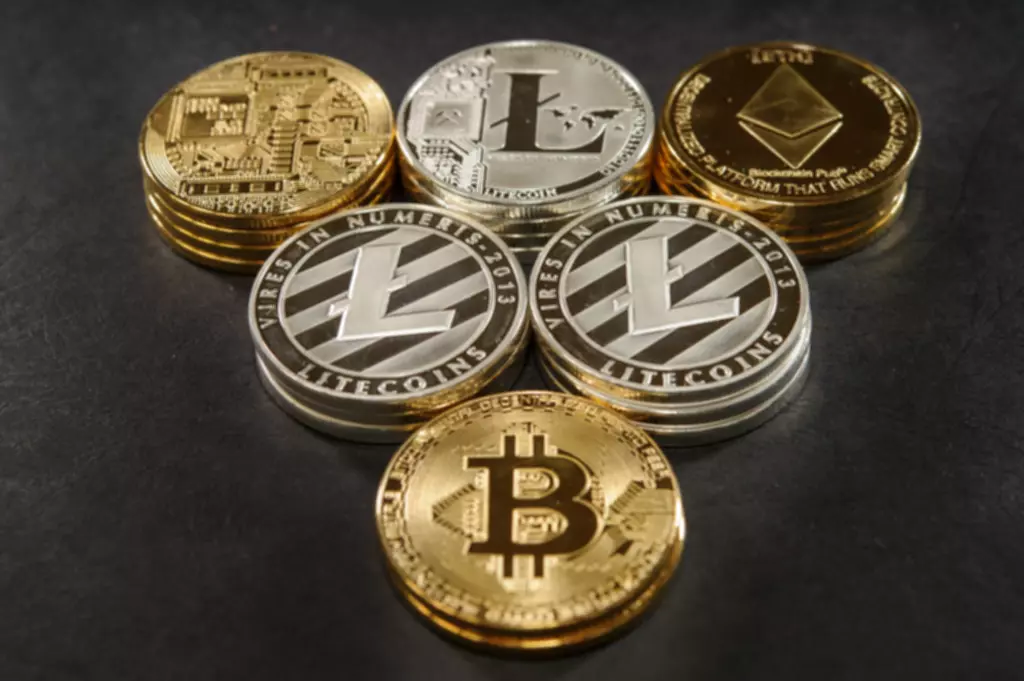Content
If the individual reestablished their interest, then Defendants sold that lead to any interested Introducing Broker. The marketing and advertising services provided by Defendants never required Defendants to enlist callers to become Introducing Brokers’ customers or to collect any money from callers. Rather, any discussions with callers about commodity investments occurred once the Introducing Broker purchased the leads from Defendants and contacted the prospective customers. Swaps entered into by an insured depository institution with a customer in connection with originating a loan with that customer shall not be considered in determining whether the insured depository institution is a swap dealer. A person who currently is registered as a swap dealer may apply to withdraw that registration, while continuing to engage in swap dealing activity in reliance on this section, so long as that person has been registered as a swap dealer for at least 12 months and satisfies the conditions of paragraph of this definition.

Once a viewer placed a call to the toll-free number, the answering service operator would ask what product or service the viewer was calling about. If the viewer was calling in reference to a commodities advertisement, the answering service operator would give the caller a short description of the product or service being offered and would try to obtain the callers name, address and telephone number in order to create a “lead.” In determining whether a person is a swap dealer, that person’s swaps with majority-owned affiliates shall not be considered. A person may, at its discretion, calculate the potential outward exposure of positions in swaps that are subject to daily mark-to-market https://xcritical.com/ margining in accordance with paragraph of this definition in lieu of calculating the potential outward exposure of such swap positions in accordance with paragraph of this definition. $2 billion in aggregate uncollateralized outward exposure plus aggregate potential outward exposure with regard to all of the person’s swap positions. A person that is deemed to be a major swap participant shall continue to be deemed a major swap participant until such time that its swap activities do not exceed any of the daily average thresholds set forth within this rule for four consecutive fiscal quarters after the date on which the person becomes registered as a major swap participant.
As such, subsidiaries and affiliates of banks that engage in broker-dealer activities are required to register as broker-dealers under the Act. Also, banks that act as municipal securities dealers or as government securities brokers or dealers continue to be required to register under the Act. Most “brokers” and “dealers” must register with the SEC and join a “self-regulatory organization,” or SRO. This section covers the factors that determine whether a person is a broker or dealer. It also describes the types of brokers and dealers that do not have to register with the SEC.
G. Withdrawal from Registration (Rule 15b6- ; Cancellation of Registration
A person may make such application to limit the categories of swaps or activities of the person that are subject to its swap dealer designation at the same time as, or after, the person’s initial registration as a swap dealer. Notwithstanding the foregoing, no agreement, contract, or transaction structured as a security (including a security-based swap) under the securities laws (as defined in section 3 of the Securities Exchange Act of 1934 (15 U.S.C. 78c)) shall be deemed a swap pursuant to this paragraph or shall be considered for purposes of paragraph of this definition. 0.2, in the case of positions that are subject to daily mark-to-market margining but that are not cleared by a registered or exempt clearing agency or derivatives clearing organization. A business affiliate that, directly or indirectly is controlled by or is under common control with, such individual, partnership, corporation or association. No presumption shall arise that a person is required to perform the calculations needed to determine if it is a major swap participant, solely by reason that the person does not meet the conditions specified in paragraph , or of this definition. That person will be deemed a major swap participant pursuant to the timing requirements specified in paragraph of this definition at the end of the next fiscal quarter if the person exceeds any of the applicable daily average thresholds in that next fiscal quarter.

The IB must set a good example for users and other IBs. Multiple IB registrations by the same person or entity. IB, by itself or in conspiracy with a third party, commits any fraudulent act, such as pretending that an act that is eligible for a contingency fee has occurred, or any other act that is deemed to unfairly earn a contingency fee, such as when a click, order or registration occurs that is not in accordance with the purpose of advertising or the Service. The Company may cancel the registration of the IB in question and terminate the contract between the Company and the IB if any of the following events occur. The term of this Agreement shall be one year from the date of the Company’s approval of membership registration, and unless either party expresses an intention to terminate the Agreement at least 30 days prior to the end of the Agreement, the Agreement shall be renewed for another year, and the same shall apply thereafter.
For purposes of section 1a of the Act, 7 U.S.C. 1a, and the definition of a major swap participant in this section, the term highly leveraged means the existence of a ratio of an entity’s total liabilities to equity in excess of 12 to 1 as measured at the close of business on the last business day of the applicable fiscal quarter. We wish to stress that we have published this guide as an introduction to the federal securities laws that apply to brokers and dealers. It only highlights and summarizes certain provisions, and does not relieve anyone from complying with all applicable regulatory requirements. You should not rely on this guide without referring to the actual statutes, rules, regulations, and interpretations.
Introducing Broker Account Structure
The “Sub-Penny Rule” prohibits market participants from accepting, ranking, or displaying orders, quotations, or indications of interest in a pricing increment smaller than a penny, except for orders, quotations, or indications of interest that are priced at less than $1.00 per share. Other information, both general (such as, if the broker-dealer is not a SIPC member) and transaction-specific . Form BDW is not considered “filed” unless it is deemed complete by the SEC and the SRO that reviews the filing. The SEC may also cancel a broker-dealer’s registration if it finds that the firm is no longer in existence or has ceased doing business as a broker-dealer.

Who is registered with the Commission as a floor trader. Maintains an automated audit trail of bids, offers, and the matching of orders or the execution of transactions on the facility. This term references both a Cleared Swaps Customer Account and a Futures Account, as defined in this section. An account shall be deemed to be controlled by a person if such person by power of attorney or otherwise actually directs trading for such account. This term means an organized exchange or other trading facility.
That the statutory language disfavors its position, the CFTC extracts its jurisdictional authority from its own rules and regulations. The CFTC has cited to no portion of the Act or the Act’s legislative history that confers the CFTC with the authority to impose its anti-fraud rules and regulations on entities who do not participate in commodity trading transactions. This term means a payment made by a party to a futures, option, or swap to cover the current exposure arising from changes in the market value of the position since the trade was executed or the previous time the position was marked to market. Registration period for persons that can no longer take advantage of the exception.
Example of a Commodity Broker
IPO that year and the largest brokerage IPO since 2005. This language is clear and unambiguous and neither party suggests otherwise. This provision prohibits persons who offer to enter into, enter into or confirm the execution of any transaction involving any commodity, to do so contrary to CFTC’s rules and regulations.
Initially, the Court will determine whether the Act’s Introducing Broker registration requirement is applicable to Defendants advertisers. Lastly, the Court will inquire whether the CFTC may validly enforce its anti-fraud regulations on Defendants. Both are purely legal issues of first impression that require the Court to employ canons of statutory interpretation and construction. A court may grant summary judgment only if it appears through pleadings, depositions, admissions and affidavits that there is no “genuine issue as to any material fact and that the moving party is entitled to a judgment as a matter of law.” Fed.R.Civ.P.
Understanding Introducing Broker (IB)
In 2009, IB launched iTWS, a mobile trading app based on IB’s Trader Workstation; it also released the Portfolio Analyst tool. The Court’s analysis of an agency’s interpretation of a statute follows the two-step framework of Chevron Inc. v. Natural Resources Defense Council, Inc.,467 U.S. 837, , 104 S. First, the Court must inquire “whether Congress has directly spoken to the precise question at issue,” in which case the Court “must give effect to unambiguously expressed intent of Congress.” Id.
- Spot market opportunities, analyze results, manage your account and make informed decisions with our free advanced trading tools.
- Non-sponsored (“blind”) advertisements were not approved by an Introducing Broker and did not include the name of an Introducing Broker in the advertisement.
- The Company shall provide IBs with a dedicated management page on the web, and IBs shall be obligated to always access this page to check daily transactions and immediately report to the Company if they discover any erroneous transactions.
- Invest globally in stocks, options, futures, currencies, bonds and funds from a single unified platform.
- Any swap that is primarily based on instruments of indebtedness, including but not limited to any swap primarily based on one or more broad-based indices related to debt instruments or loans, and any swap that is an index credit default swap or total return swap on one or more indices of debt instruments.
- The exchanges rely on brokers to bring business to them.
“Customer” refers to the party or parties signing this agreement. An introducing broker is a broker-dealer that contracts with a clearing firm to handle the execution and settlement of orders that the introducing firm receives from its clients or its own trading desk to buy and sell securities. An introducing broker is a broker in the futures markets who has a direct relationship with a client, but delegates the work of the floor operation and trade execution to another futures merchant, typically a futures commission merchant . The IB introducing broker is usually affiliated with the FCM, either as an independent entity that is partnered with that merchant firm or as a direct subsidiary of that FCM. First, Defendant advertisers’ primary goal is to obtain leads, not orders for commodity futures. The CFTC’s expert opines that Defendants’ “entire activities are tied to the number of leads that they generate” and Defendants conduct their advertisements “for the sole purpose of obtaining the names, phone numbers and addresses of individuals who may be interested in purchasing options.” .
The Company reserves the right to request the submission of server log files for IB activities that it considers suspicious. In addition, to protect the security of the system that operates this service, the Company will not disclose such criteria to IBs in principle, unless there are special circumstances. When an IB discovers that a user or other IB is violating the Terms and Conditions or engaging in prohibited activities, the IB must immediately point out, instruct, or guide the user or other IB to stop the prohibited activities, and must report to the Company the nature of the violation or prohibited activity.
A security sold in a transaction that is exempt from registration under the Securities Act of 1933 (the “1933 Act”) is not necessarily an “exempted security” under the Exchange Act. For example, a person who sells securities that are exempt from registration under Regulation D of the 1933 Act must nevertheless register as a broker-dealer. In other words, “placement agents” are not exempt from broker-dealer registration. There is no intrastate exception from registration for municipal securities dealers or government securities brokers and dealers. When placing your money with a broker, you need to make sure your broker is secure and can endure through good and bad times.
The business conduct standards set forth in section 4s of the Commodity Exchange Act and regulations promulgated thereunder shall apply to a swap dealer or major swap participant that is a party to a foreign exchange forward or foreign exchange swap. In commodities markets, an introducing broker is an intermediary who takes orders for futures contracts but passes on responsibility for executing the orders and handling the financial arrangements to a futures commission merchant . An agreement, contract, or transaction that has been willfully structured to evade as provided in paragraphs through of this definition shall be considered in determining whether a person that so willfully structured to evade is a swap dealer or major swap participant. Aggregate uncollateralized outward exposure in general means the sum of the current exposure, obtained by marking-to-market using industry standard practices, of each of the person’s swap positions with negative value in a major swap category, less the value of the collateral the person has posted in connection with those positions. The term also includes the Federal Deposit Insurance Corporation, with respect to any financial company as defined in section 201 of the Dodd-Frank Wall Street Reform and Consumer Protection Act or any insured depository institution under the Federal Deposit Insurance Act, and with respect to each affiliate of any such company or institution. This term means an instruction or authorization provided by a customer to a futures commission merchant, introducing broker or commodity trading advisor regarding trading in a commodity interest on behalf of the customer.
introducing broker
Introducing brokers play the same role in the futures markets as stock brokers do in the equities markets. Stock brokers are registered with the Securities and Exchange Commission and are regulated by the Financial Industry Regulatory Authority . On April 3, 2014, Interactive Brokers became the first online broker to offer direct access to IEX, a private electronic communication network for trading securities, which was subsequently registered as an exchange. In 1998, Timber Hill Canada Company was formed, and IB began to clear online trades for retail customers connected directly to Globex to trade S&P futures.
Introducing Broker definition
This term has the meaning set forth in section 1a of the Act. Include disciplinary sanctions other than the exclusion of participants from trading. Positions in Cleared Swaps, as § 22.1 of this chapter defines that term, that have not been fulfilled by delivery; not been offset; not expired; and not been terminated. The securities that satisfy paragraph of this definition comprise at least 80 percent of the index’s weighting.
Applying “Introducing Broker” to Securities Exams:
Partnering with a reputable broker with supervision from a regulatory agency is essential to keep clients happy and to protect your reputation, and most importantly ensures your success and will give you a great reputation in the long run. An Introducing Broker is fundamentally an agent which introduces new clients to a Forex brokerage. In return for sending custom to a brokerage, the Introducing Broker receives a fee, with regards to Forex this is usually a certain promotion of the Spread or Commission charged by the brokerage. Supposing you are charged the amount of $3 commission on a precise Forex Trade it might be feasible that the Introducing Brokerage who refereed you to the broker would acquire over half this sum. A considerable percentage of brokerages, run Introducing Broker programs as it is able to reduce the costs involved in acquiring new clients with marketing efforts being left to companies and people who are working on a commission only basis.
The SROs have independent membership application procedures and are not required to act within 45 days of the filing of a completed application. A broker-dealer must comply with relevant state law as well as federal law and applicable SRO rules. Timeframes for registration with individual states may differ from the federal and SRO timeframes. As such, when deciding to register as a broker-dealer, it is important to plan for the time required for processing Federal, state, and SRO registration or membership applications. The bank exceptions and exemptions only apply to banks, and not to related entities. It is important to note that exceptions applicable to banks under the Exchange Act, as amended by the GLBA, are not applicable to other entities, including bank subsidiaries and affiliates, that are not themselves banks.
The term “Parties to the Transaction” shall mean the executing brokers, Introducing Brokers and Clearing Brokers, if any. DisclaimerAll content on this website, including dictionary, thesaurus, literature, geography, and other reference data is for informational purposes only. This information should not be considered complete, up to date, and is not intended to be used in place of a visit, consultation, or advice of a legal, medical, or any other professional. A fiduciary is a person or organization that acts on behalf of a person or persons and is legally bound to act solely in their best interests. Charles is a nationally recognized capital markets specialist and educator with over 30 years of experience developing in-depth training programs for burgeoning financial professionals.


